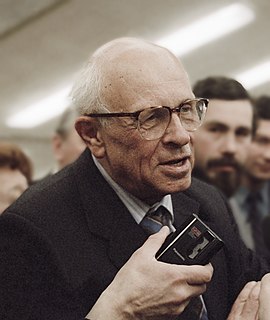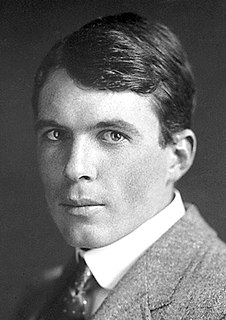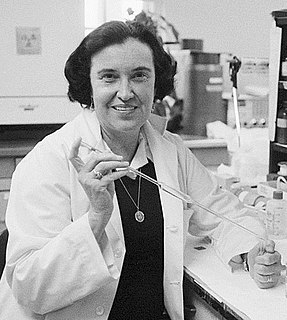A Quote by Martin Rees
The most important advances, the qualitative leaps, are the least predictable. Not even the best scientists predicted the impact of nuclear physics, and everyday consumer items such as the iPhone would have seemed magic back in the 1950s.
Related Quotes
The idea would be in my mind - and I know it sounds strange - is that the most important advances in medicine would be made not by new knowledge in molecular biology, because that's exceeding what we can even use. It'll be made by mathematicians, physicists, computer scientists, figuring out a way to get all that information together.
The scientists who made the atomic bomb are, in my sense, people with a tragic destiny. You know, there was the US race with Nazi Germany and good evidence that the Germans were more advanced in nuclear physics, and we had to get the bomb first. But then there was the use of that dreadful weapon, or instrument of genocide, and many of the more sensitive scientists turned quickly into anti - nuclear people - and very effective ones.
I feel very strongly indeed that a Cambridge education for our scientists should include some contact with the humanistic side. The gift of expression is important to them as scientists; the best research is wasted when it is extremely difficult to discover what it is all about ... It is even more important when scientists are called upon to play their part in the world of affairs, as is happening to an increasing extent.
What I remember most clearly was that when I put down a suggestion that seemed to me cogent and reasonable, Einstein did not in the least contest this, but he only said, 'Oh, how ugly.' As soon as an equation seemed to him to be ugly, he really rather lost interest in it and could not understand why somebody else was willing to spend much time on it. He was quite convinced that beauty was a guiding principle in the search for important results in theoretical physics.
We get the exciting result that the total energy of the universe is zero. Why this should be so is one of the great mysteries - and therefore one of the important questions of physics. After all, what would be the use of studying physics if the mysteries were not the most important things to investigate?
I think that physics is the most important-indeed the only-means we have of finding out the origins and fundamentals of our universe, and this is what interests me most about it. I believe that as science advances religion necessarily recedes, and this is a process I wish to encourage, because I consider that, on the whole, the influence of religion is malign.
I started out in nuclear physics. But after I became more sensitized to the environmental and health implications of the nuclear system - I was being trained to be the first women in the fast-breeder reactor in India (and was in it when it first went critical) - I didn't feel comfortable with it. So I went into theoretical physics.
Meteorologists don't use a script, and most create their own graphics and certainly put together their own forecasts. Most of us went to school to become scientists - at least I did - and studied thermodynamics, physics, and tons of calculus to take this young science to the next level. Our accuracy is amazing and will only continue to improve.





































